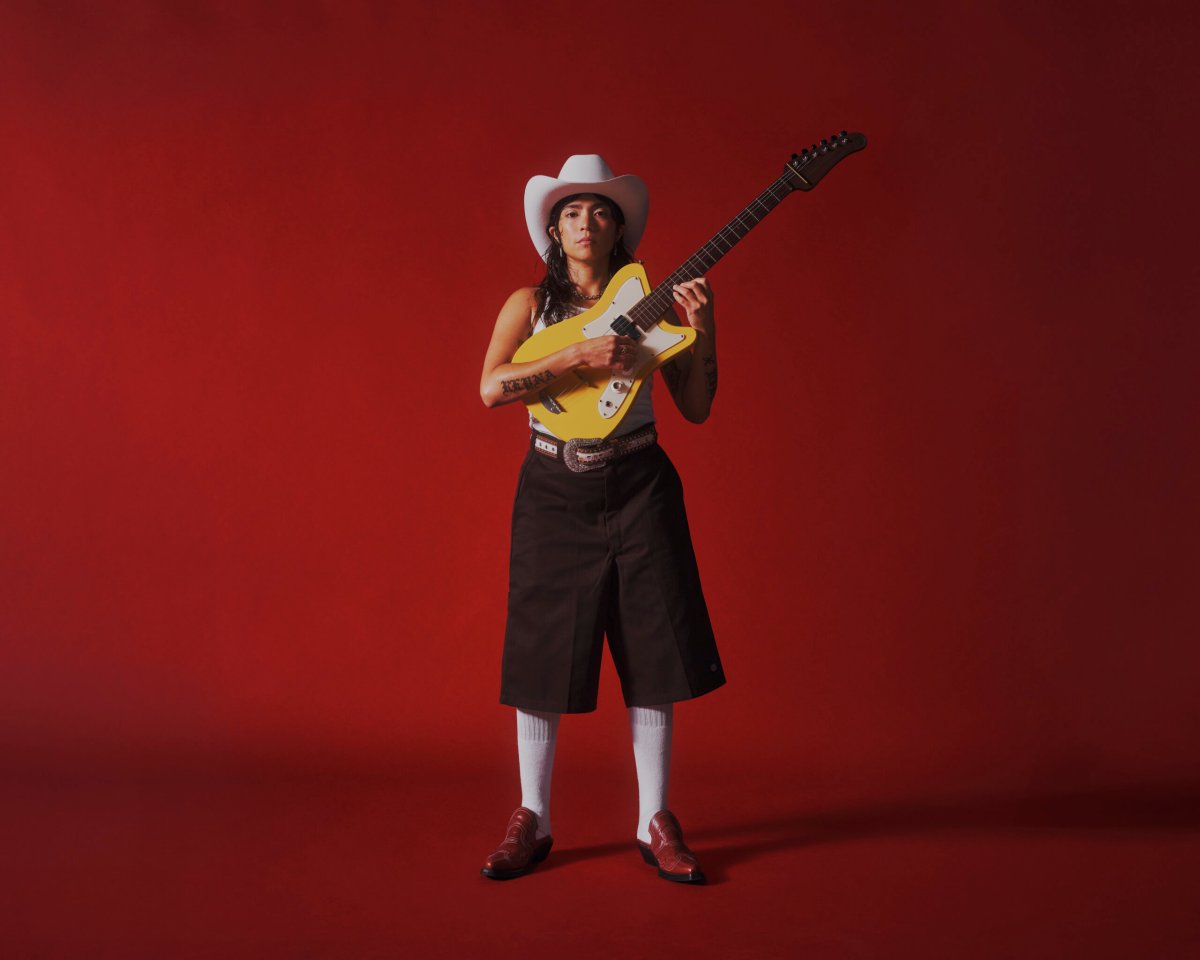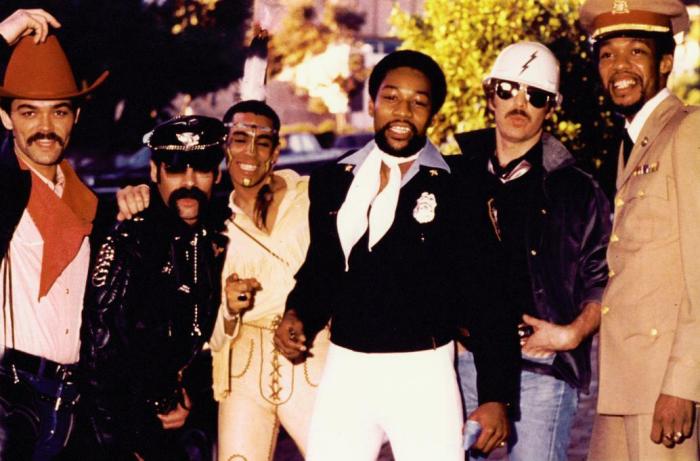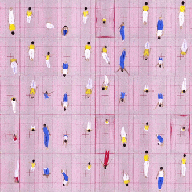This month, Gay City News reviews the latest albums by Judas Priest, whose gay singer Rob Halford is a legend in heavy metal, and the Latinx pop project Reyna Tropical.
Judas Priest | “Invincible Shield” | Epic | March 8th
“Invincible Shield” isn’t just Judas Priest’s latest album, it’s a victory lap for their 50 years as a band. Leather daddy Rob Halford, who remains one of the few out queer men in metal, is now 72. Although he didn’t come out till 1998, the band dressed as though they stepped out of a Tom of Finland drawing. As early as 1977, he sang about a wild night at a gay bar in “Raw Deal,” with such subtle lyrics as “All eyes hit me as I walked through the bar/Them steel and leather guys were fooling with the denim dudes.”
The days when they genuinely frightened moral guardians, leading to a lawsuit that claimed supposed backwards messages in their music inspired a suicide, are long gone. They’ve grown into comfort food. But age has not harmed Halford’s operatic falsetto – he can still leap an octave from note to note – or Glenn Tipton’s guitar solos.
At their peak of popularity, Judas Priest never even hinted that they were Satanists, but they wound up victims of the satanic panic anyway. They dabble in such imagery on “Invincible Shield,” but their stories of deals with the devil and Satanists posing as priests refer to real life more than horror movie fantasy. The “fictitious conjuror who grinds against your will…a deviant Pecksniffian his words are all pretend” of “Devil in Disguise” could be any number of politicians and media figures. Fittingly, “The Serpent and the King” mingles religious imagery and political imagery, with Halford singing “the end is coming soon.”
While it took Judas Priest a few albums to find their footing, their slips have come from moving away from the core sound they established in the late ‘70s and early ‘80s: pop metal on “Turbo,” the symphonic concept album “Nostadramus.” Incorporating aspects of the thrash bands they inspired felt much more natural. “Invincible Shield” sports a few touches of psychedelia and prog: a synthesizer intro on “Panic Attack,” phasing on Halford’s voice here and there. The album emphasizes extended, complex guitar solos. The biggest flaw is the placement of vocals at the top of the mix whenever Halford sings, toning down the power of guitars and drums. The band’s unflagging energy level battles with heavy compression. They actually sounds louder when the guitars have more breathing room. While no one wants a Judas Priest power ballad, “Invincible Shield” proves that almost an hour of songs with similar dynamics can get numbing.
Reyna Tropical | “Malegria” | Psychic Hotline | March 29th
Rhythms from across Latin America pulse behind Reyna Tropical. The inspiration behind “Malegria” came from 2 years of travel in Colombia, Puerto Rico and Mexico. When reggaetón became mainstream pop in the U.S., its most successful artists have been light-skinned. Colombian singer J. Balvin even made a music video where he led Black women around on leashes. “Malegria” is a reminder that Blackness and indigenity are inherent to Latinidad, celebrating queerness as part of this mix. The interlude “Queer Love and Afro-Mexico,” which ends with Reyna Tropical’s late producer Nectall Diaz saying “we just keep finding ways to move forward…there’s a very clear purpose now,” spells this out.
“Malegria” alternates between polished songs, spoken word tracks and lo-fi fragments. “Radio Esperanza” simulates a scratchy broadcast, while “La Guitarra” combines field recordings of birdsong with Fabi Reyna’s guitar. The founder of “She Shreds,” a magazine devised to cover female and non-binary guitarists, she testifies in a spoken interlude about her reluctance to start singing because she wanted to be known exclusively as a guitarist. Her tone is clean but scratchy, without distortion, and she tends to repeat a brief pattern with small variations for a whole song. Reyna Tropical’s songs move along by juxtaposing her percussive work with complex drumming.
Since Reyna Tropical sing in Spanish, the English-language spoken interludes of “ Malegria” explains its intentions for Anglophone listeners. Reyna’s breathy voice keeps one foot in dream pop, but their mixture of guitar, samples and percussion stands outside genre. “Cartagena” complicates a reggaetón beat by adding constant fills on congas and timbales. Piano fits around kick drums on “Conexion Ancestral.” Reyna Tropical can bliss out, invoking a comfortable warmth. (Take their music video “Encerrada,” in which they film themselves having a picnic.) But the positive spirit comes from making an active effort to connect with nature and the roots of their heritage.




































